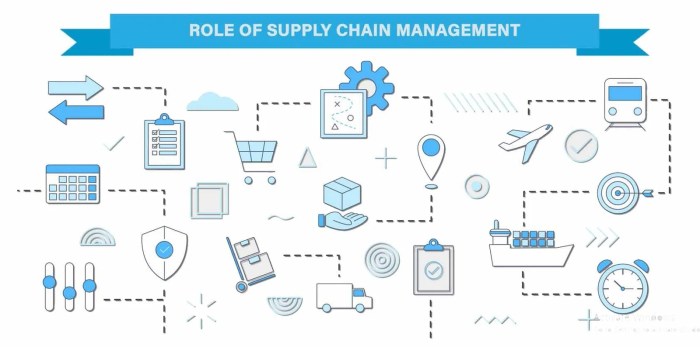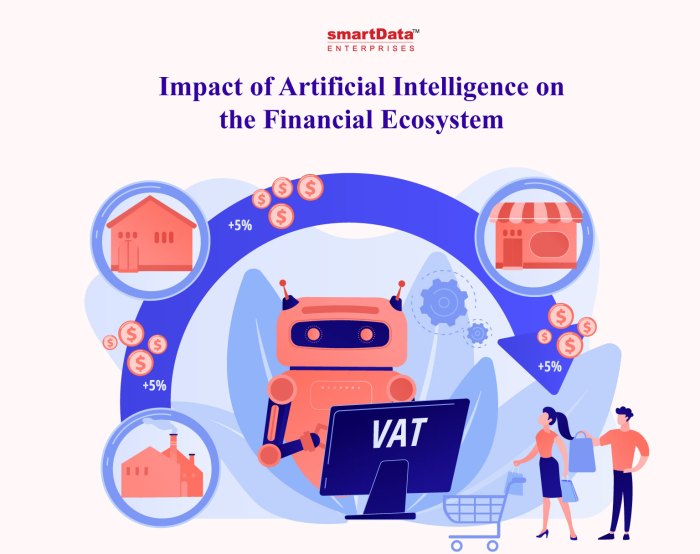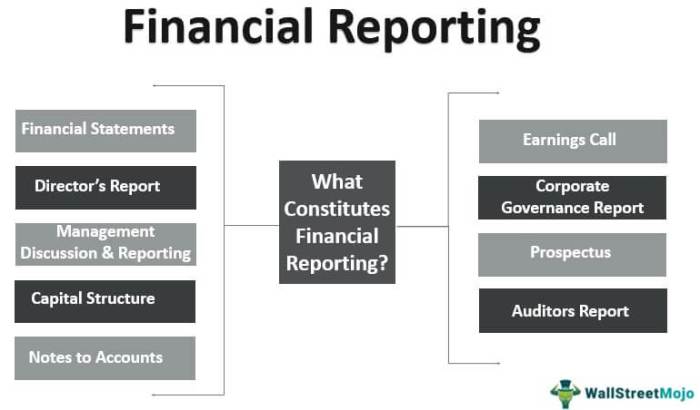How The Rise of Decentralized Finance (DeFi) Affects Traditional Accounting is a crucial question in today’s rapidly evolving financial landscape. The emergence of DeFi, with its decentralized and transparent nature, presents significant challenges and opportunities for traditional accounting methods. This exploration delves into the core differences between these two systems, examining how DeFi’s unique characteristics impact financial reporting, asset valuation, risk management, and the regulatory environment. We will analyze the implications for accountants and the future of the profession in this increasingly interconnected world.
This analysis will cover the fundamental principles of both DeFi and traditional accounting, highlighting their key distinctions. We will then examine the impact of DeFi’s decentralized structure on financial reporting, the challenges in auditing DeFi transactions, and the complexities of valuing DeFi assets. Furthermore, the regulatory and legal implications will be discussed, exploring how existing accounting standards might need adaptation to accommodate the unique aspects of DeFi transactions. Finally, we will look ahead to the future, considering how accounting practices might evolve to integrate DeFi and the skills needed for accountants to navigate this new landscape.
Introduction to DeFi and Traditional Accounting
Decentralized Finance (DeFi) and traditional accounting represent fundamentally different approaches to financial management. Understanding their core principles and contrasting their methodologies is crucial for navigating the evolving financial landscape. This section will explore the core tenets of each system and highlight their key differences, particularly concerning the implications for accounting practices.
Core Principles of Decentralized Finance (DeFi)
DeFi leverages blockchain technology to create a transparent, permissionless, and automated financial system. Its core principles include decentralization, transparency, programmability, and composability. Decentralization eliminates reliance on intermediaries like banks and brokers. Transparency, ensured by the public nature of blockchain ledgers, allows for auditable transactions. Programmability allows for the creation of sophisticated financial instruments and protocols through smart contracts. Composability enables different DeFi applications to interact seamlessly, creating a dynamic and interconnected ecosystem. This contrasts sharply with the centralized nature of traditional finance.
Fundamental Concepts of Traditional Accounting Practices, How The Rise of Decentralized Finance (DeFi) Affects Traditional Accounting
Traditional accounting follows established principles, such as Generally Accepted Accounting Principles (GAAP) or International Financial Reporting Standards (IFRS). These frameworks dictate how financial transactions are recorded, classified, summarized, and reported. Key concepts include the double-entry bookkeeping system, accrual accounting, and the matching principle. Traditional accounting emphasizes accuracy, consistency, and reliability, focusing on historical data and audited financial statements to provide a comprehensive picture of a company’s financial health. The emphasis is on centralized control and reporting to regulatory bodies.
Comparison of DeFi and Traditional Finance from an Accounting Perspective
The primary difference between DeFi and traditional finance, from an accounting perspective, lies in the underlying infrastructure and the nature of the assets involved. Traditional accounting deals with tangible assets and liabilities, with clear ownership structures and regulated reporting mechanisms. DeFi, however, operates on a decentralized, permissionless network, dealing with cryptocurrencies and other digital assets, often lacking established valuation methods and regulatory oversight. This creates challenges in terms of auditing, valuation, and reporting. The immutable nature of blockchain transactions offers advantages in terms of transparency and traceability, but poses challenges for traditional accounting methods designed for centralized systems. For instance, the concept of a “bank balance” is replaced by a balance held in a cryptocurrency wallet, and the reconciliation process differs significantly.
Comparison of Traditional Accounting and DeFi Accounting
| Feature | Traditional Accounting | DeFi Accounting | Key Differences |
|---|---|---|---|
| Centralization | Centralized institutions (banks, etc.) | Decentralized, permissionless networks | Control and oversight differ significantly; DeFi lacks centralized authority. |
| Asset Type | Tangible assets, fiat currency | Cryptocurrencies, NFTs, other digital assets | Valuation and auditability present unique challenges in DeFi due to volatility and lack of standardized valuation methods. |
| Transaction Recording | Double-entry bookkeeping | Blockchain technology, smart contracts | Immutability and transparency of blockchain transactions contrast with the potential for manipulation in traditional systems. |
| Regulatory Framework | GAAP, IFRS, and other regulations | Evolving regulatory landscape; largely unregulated in many jurisdictions | Lack of established standards for DeFi accounting creates uncertainty and challenges for compliance. |
| Auditing | Established auditing procedures | Developing auditing methodologies; on-chain data analysis plays a crucial role | DeFi audits focus on smart contract code and transaction integrity rather than traditional financial statement analysis. |
Impact of DeFi on Financial Reporting
The decentralized nature of Decentralized Finance (DeFi) presents significant challenges to traditional financial reporting standards, which are built upon centralized systems and readily auditable transactions. The lack of a central authority overseeing DeFi transactions necessitates a re-evaluation of existing accounting principles and the development of new methodologies to accurately reflect the financial realities of this rapidly evolving sector. This section explores the impact of DeFi on financial reporting, highlighting the complexities introduced by its decentralized architecture.
The absence of centralized control in DeFi significantly impacts financial reporting standards. Traditional accounting relies on verifiable records held by central entities like banks or clearinghouses. In contrast, DeFi transactions are recorded on distributed ledgers, primarily blockchains, making it difficult to establish a single source of truth for auditing purposes. This lack of centralized control complicates the verification of assets, liabilities, and transactions, leading to uncertainty in financial reporting. The inherent anonymity of some DeFi protocols further exacerbates these challenges.
Challenges in Auditing DeFi Transactions and Assets
Auditing DeFi transactions and assets poses unique challenges due to the decentralized and pseudonymous nature of many DeFi platforms. Traditional audit methods, which rely on centralized databases and readily accessible records, are not directly applicable. The complexities of smart contracts, the speed and volume of transactions, and the potential for vulnerabilities within the code all contribute to the difficulty of obtaining a complete and reliable audit trail. Furthermore, the lack of clear regulatory frameworks for DeFi adds to the uncertainty surrounding auditing standards and procedures. Auditors must develop new techniques and tools to navigate the complexities of blockchain technology and smart contract analysis to effectively assess the financial health and compliance of DeFi entities.
Examples of Differing Transaction Recordings
A key difference between DeFi and traditional transaction recording lies in the level of detail and traceability. Traditional accounting relies on detailed records of transactions, including parties involved, dates, and amounts. In DeFi, while transactions are recorded on the blockchain, identifying the real-world entities behind pseudonymous addresses can be difficult, hindering the creation of complete and auditable financial statements.
For example, a traditional bank transfer clearly identifies the sender and receiver, along with the transaction amount and date. In contrast, a DeFi transaction involving a decentralized exchange (DEX) might only show the movement of tokens between two wallet addresses, without revealing the identities of the individuals or entities behind those addresses. This lack of transparency makes it challenging to comply with know-your-customer (KYC) and anti-money laundering (AML) regulations, crucial components of traditional financial reporting. Furthermore, the composability of DeFi protocols, where multiple platforms interact, creates further complexity in tracking the origin and destination of funds.
Hypothetical Scenario: Reporting a DeFi Investment
Imagine Company X invests $100,000 in a DeFi lending protocol, supplying liquidity to a stablecoin pool. The protocol generates interest income, which is automatically reinvested into the pool. At the end of the reporting period, the value of Company X’s investment has fluctuated due to changing market conditions and interest rates. Traditional accounting methods struggle to accurately reflect this investment.
The challenge lies in valuing the investment. The market value of the underlying stablecoin might change, and the interest earned is not consistently accrued in a traditional manner. The lack of a centralized record of the investment makes valuation difficult. The company might need to employ sophisticated valuation models, potentially engaging specialized firms experienced in DeFi accounting, to estimate the fair value of the investment and appropriately reflect it in its financial statements. This introduces complexity and potential for discrepancies compared to the reporting of a traditional investment, like a corporate bond. Moreover, reporting the interest income requires careful consideration of the timing and method of accrual, as it is automatically reinvested rather than directly received.
DeFi’s Influence on Asset Valuation and Risk Management
The rise of Decentralized Finance (DeFi) presents significant challenges to traditional accounting practices, particularly in the areas of asset valuation and risk management. The inherent volatility and complexity of DeFi assets, coupled with the lack of established regulatory frameworks, necessitate a re-evaluation of existing methodologies. This section will explore the unique difficulties in assessing the value and risk associated with DeFi investments and highlight the emergence of new risk categories previously unseen in traditional finance.
The decentralized and often pseudonymous nature of DeFi introduces complexities not found in traditional financial markets. Traditional valuation methods rely heavily on established financial statements, audited data, and regulatory oversight – elements largely absent in the DeFi ecosystem. This opacity makes it challenging to accurately assess the intrinsic value of DeFi assets like cryptocurrencies and tokens. Furthermore, the rapid evolution of DeFi protocols and the constant emergence of new tokens further complicates the valuation process, requiring dynamic and adaptable assessment frameworks.
Challenges in Valuing DeFi Assets
Accurately valuing DeFi assets presents a significant hurdle for accountants and financial analysts. Unlike traditional assets with readily available market data and historical performance, DeFi assets often lack a consistent and reliable price history. The prices of cryptocurrencies and tokens can fluctuate wildly due to factors such as market sentiment, technological advancements, and regulatory developments. Moreover, the lack of centralized custodianship and the inherent risks associated with smart contract vulnerabilities introduce further uncertainty in valuation. Traditional discounted cash flow (DCF) models, often used for valuing traditional assets, may be inadequate for DeFi assets due to the absence of reliable future cash flow projections. Alternative valuation methods, such as those based on market capitalization or network effects, are often employed, but these approaches also come with limitations and uncertainties. For instance, a token’s market capitalization might inflate due to speculation, not reflecting its underlying value or utility.
Comparison of Traditional and DeFi Risk Assessment Methods
Traditional risk assessment methodologies, often focused on credit risk, market risk, and operational risk, need to be adapted to account for the unique risks inherent in DeFi. Traditional methods primarily rely on historical data and established statistical models. However, the relatively short history of DeFi and the high volatility of its assets make these traditional methods less effective. DeFi risk assessment requires a more holistic approach, incorporating factors such as smart contract vulnerabilities, liquidity risks, and the potential for exploits. Quantitative analysis, combined with qualitative assessments of the underlying technology and governance structures, becomes crucial. For example, while a traditional bank might assess credit risk through credit scoring and historical data, assessing the risk of a DeFi lending protocol would involve analyzing the code for vulnerabilities, assessing the collateralization ratio, and evaluating the protocol’s overall security and reputation.
New Risks Introduced by DeFi
DeFi introduces several novel risk categories that were largely absent in traditional finance. Smart contract risks, arising from vulnerabilities in the code that governs DeFi protocols, are a prime example. Exploits of these vulnerabilities can lead to significant financial losses for users and investors. Another significant risk is liquidity risk, which refers to the ability to quickly and efficiently convert an asset into cash. In traditional finance, liquidity is generally assured through established markets and intermediaries. However, DeFi markets can experience periods of illiquidity, particularly during periods of high volatility or market downturns, making it difficult to exit positions. Furthermore, regulatory uncertainty poses a substantial risk. As the regulatory landscape for DeFi continues to evolve, the lack of clarity can impact the valuation and investment decisions related to DeFi assets. Oracle manipulation, where the data used by DeFi protocols is tampered with, represents another unique risk factor.
Risk Factors Associated with DeFi Investments and Their Impact on Financial Reporting
The various risk factors associated with DeFi investments significantly impact financial reporting. Accurate and transparent reporting is crucial for providing investors with a complete picture of the risks and potential rewards associated with DeFi investments.
- Smart Contract Risk: Vulnerabilities in the code governing DeFi protocols can lead to losses and require disclosure in financial statements.
- Liquidity Risk: The inability to quickly convert DeFi assets into cash can impact the valuation of assets and necessitate adjustments to financial reporting.
- Oracle Risk: Manipulation of data feeds used by DeFi protocols can distort valuations and lead to misreporting.
- Regulatory Uncertainty: Changes in regulations can significantly affect the value and legality of DeFi assets, necessitating disclosures and potential write-downs.
- Volatility Risk: The inherent volatility of DeFi assets requires careful consideration in valuation and reporting, possibly leading to impairment charges.
- Security Risk: Hacking and theft of DeFi assets necessitate immediate disclosure and impact the reported financial position.
- Governance Risk: Changes in governance models or decision-making processes within DeFi protocols can influence the value of assets and should be disclosed.
Regulatory and Legal Implications of DeFi on Accounting Practices
The rapid growth of Decentralized Finance (DeFi) presents significant challenges to traditional accounting practices and regulatory frameworks. The decentralized and pseudonymous nature of DeFi transactions, coupled with the lack of a unified global regulatory approach, creates uncertainty for accountants and businesses alike. This section explores the evolving regulatory landscape and the legal implications of this nascent technology on established accounting standards.
The evolving regulatory landscape surrounding DeFi is characterized by a patchwork of approaches across different jurisdictions. Some countries are actively exploring regulatory sandboxes to foster innovation while mitigating risks, while others maintain a more cautious, wait-and-see approach. This lack of harmonization poses significant challenges for businesses operating across borders, as they must navigate a complex web of differing rules and interpretations. The absence of a globally consistent framework also increases the risk of regulatory arbitrage, where businesses may seek jurisdictions with more lenient regulations.
Uncertainty in Financial Reporting Standards
Existing accounting standards, such as those issued by the International Accounting Standards Board (IASB) and the Financial Accounting Standards Board (FASB), were not designed to accommodate the complexities of DeFi transactions. For example, the valuation of cryptocurrencies and other DeFi assets, the recognition of income and expenses related to DeFi activities, and the treatment of smart contracts present significant challenges. Accountants must grapple with questions of how to properly account for decentralized autonomous organizations (DAOs), yield farming activities, and the implications of on-chain governance. The lack of clear guidance increases the risk of inconsistencies and inaccuracies in financial reporting. This necessitates the development of updated standards and interpretations specifically tailored to the unique characteristics of DeFi.
Legal Challenges of Decentralized Governance
The decentralized and pseudonymous nature of DeFi poses significant legal challenges. Determining liability in case of smart contract failures or security breaches is complex, as responsibility may be diffuse among developers, users, and other stakeholders. Enforcing legal judgments in cross-border DeFi disputes also presents difficulties, given the lack of centralized authorities or governing bodies. The absence of clear legal frameworks creates uncertainty for businesses and investors, potentially hindering the growth of the DeFi ecosystem. For example, a legal dispute arising from a smart contract malfunction on a decentralized exchange might involve parties in multiple jurisdictions, making it difficult to determine which laws apply and which court has jurisdiction.
Adaptation of Existing Accounting Regulations
Existing accounting regulations will likely need significant adaptation to accommodate the unique features of DeFi. This involves addressing issues such as the recognition and measurement of DeFi assets, the accounting treatment of DeFi-related income and expenses, and the disclosure requirements for DeFi-related risks. For instance, the IASB and FASB may need to develop specific guidance on the valuation of cryptocurrencies held by businesses, the accounting for staking rewards, and the treatment of losses from DeFi exploits. These adaptations will require extensive research, collaboration, and potentially the creation of entirely new accounting standards.
Examples of Legal and Regulatory Hurdles
Accountants dealing with DeFi-related transactions face several potential legal and regulatory hurdles. These include the lack of clear guidance on the tax implications of DeFi transactions, the challenges of complying with anti-money laundering (AML) and know-your-customer (KYC) regulations in a decentralized environment, and the difficulties of auditing DeFi protocols. For example, determining the taxable income generated from yield farming activities, or tracing the origin of funds involved in a DeFi transaction to ensure compliance with AML regulations, can be extremely complex. Auditing DeFi protocols requires new approaches and technologies, as traditional audit methods are not well-suited to the decentralized and transparent nature of blockchain technology. The lack of standardized accounting practices for DeFi further complicates the auditing process, increasing the risk of errors and inconsistencies.
The Future of Accounting in the Age of DeFi: How The Rise Of Decentralized Finance (DeFi) Affects Traditional Accounting

The rise of decentralized finance (DeFi) presents a significant challenge and opportunity for the accounting profession. Traditional accounting practices, built on centralized systems and trust-based relationships, must adapt to the decentralized, transparent, and automated nature of DeFi. This adaptation will require a fundamental shift in how accountants approach financial reporting, auditing, and risk management.
The integration of DeFi and traditional accounting practices will likely lead to significant changes in the coming years, impacting everything from financial reporting standards to the skills needed by accounting professionals. The potential for increased efficiency, transparency, and security is substantial, but also presents complexities that need careful consideration.
Evolution of Accounting Practices to Integrate DeFi
The future of accounting will see a closer integration of blockchain technology and traditional accounting systems. We can anticipate the development of standardized accounting protocols for DeFi applications, facilitating the automatic recording and verification of transactions. Smart contracts will automate many aspects of financial reporting, potentially reducing the need for manual intervention and minimizing human error. Furthermore, real-time data feeds from blockchain networks will provide accountants with more up-to-date and accurate financial information, improving the timeliness and reliability of financial statements. For example, imagine a scenario where a company’s financial transactions are automatically recorded on a permissioned blockchain, instantly updating the company’s balance sheet and income statement. This real-time visibility would greatly enhance financial reporting efficiency.
Blockchain Technology’s Revolution of Accounting Processes and Audits
Blockchain technology’s immutable ledger system can significantly improve the accuracy and security of accounting processes and audits. The transparency offered by blockchain will allow for greater scrutiny of transactions, potentially reducing the risk of fraud and enhancing the credibility of financial statements. Smart contracts, with their automated execution of agreements, can automate audit processes, verifying transactions and reducing the time and cost associated with traditional audits. For instance, a decentralized autonomous organization (DAO) could utilize smart contracts to automatically generate audit trails for all treasury management activities, providing a readily available and verifiable record for auditors. This level of transparency and automation can fundamentally change the auditing landscape.
Essential Skills and Knowledge for Accountants in the DeFi Landscape
To navigate the DeFi landscape effectively, accountants will need to develop a strong understanding of blockchain technology, cryptography, smart contracts, and decentralized applications (dApps). Familiarity with various DeFi protocols and their associated risks will be crucial. Furthermore, data analytics skills will become increasingly important, as accountants will need to analyze large datasets from blockchain networks to identify trends and anomalies. Finally, a solid understanding of regulatory frameworks governing DeFi will be essential to ensure compliance. Accountants will need to be comfortable with the technical aspects of DeFi, but also capable of explaining these complex concepts to clients and stakeholders in a clear and concise manner. A strong foundation in traditional accounting principles remains essential, forming the bedrock upon which DeFi-specific knowledge can be built.
Visual Representation of Future DeFi-Traditional Accounting Integration
Imagine a diagram. On one side, we have the traditional accounting system, represented by a centralized server with various accounting software and databases. On the other side, we have a representation of a blockchain network, depicted as interconnected blocks containing transaction data. Connecting these two systems is a bridge, representing APIs and other integration tools. Data flows seamlessly between the traditional system and the blockchain, with automated processes handling the transfer and reconciliation of information. The diagram also shows a feedback loop, highlighting how insights derived from the blockchain data enhance the accuracy and efficiency of the traditional accounting processes. This visual representation shows the symbiotic relationship between traditional accounting and the emerging DeFi ecosystem, highlighting the synergistic potential of combining the strengths of both.
Final Conclusion
The rise of Decentralized Finance presents a paradigm shift for the accounting profession. While challenges exist in auditing, valuation, and regulatory compliance, DeFi also offers opportunities for increased transparency and efficiency through blockchain technology. Accountants must adapt, acquiring new skills and knowledge to effectively navigate this evolving landscape. The future of accounting lies in embracing the innovations of DeFi while maintaining the core principles of accuracy, reliability, and accountability. A proactive and adaptable approach will be crucial for accountants to remain relevant and effective in this transformative era.
Quick FAQs
What are the main challenges in auditing DeFi transactions?
Auditing DeFi transactions presents challenges due to the lack of centralized control, pseudonymous identities, and the complexity of smart contracts. Verifying the accuracy and completeness of transactions across various decentralized platforms requires specialized tools and expertise.
How does DeFi impact the valuation of assets?
Valuing DeFi assets like cryptocurrencies and tokens is complex due to their volatility, lack of intrinsic value, and dependence on market sentiment. Traditional valuation methods may not be fully applicable, requiring the development of new approaches.
What new types of risks are introduced by DeFi?
DeFi introduces new risks such as smart contract vulnerabilities, security breaches, regulatory uncertainty, and the potential for significant price volatility. These risks need to be assessed and managed differently than traditional financial risks.
Will traditional accounting standards become obsolete?
It’s unlikely that traditional accounting standards will become entirely obsolete. However, they will need significant adaptation and augmentation to accommodate the unique characteristics of DeFi transactions and assets. The integration of blockchain technology may streamline some processes.
Notice The Best Tax Deduction Strategies for Entrepreneurs for recommendations and other broad suggestions.









